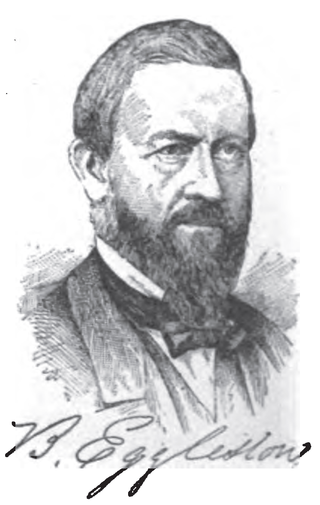Pfaff v. Wells Electronics, Inc., 525 U.S. 55 (1998), was a decision by the Supreme Court of the United States that determined what constituted being "on sale" for the purposes of barring the grant of a patent for an invention.
Utah v. Evans, 536 U.S. 452 (2002), was a United States Supreme Court case holding that the use of certain statistical techniques in the United States census does not violate 13 USC §195 or the Census Clause of the Constitution. The case was brought against Donald L. Evans, et al. by the state of Utah; Evans was the U.S. Secretary of Commerce at the time.
National Collegiate Athletic Association v. Smith, 525 U.S. 459 (1999), was a case in which the Supreme Court of the United States ruled that the NCAA's receipt of dues payments from colleges and universities which received federal funds, was not sufficient to subject the NCAA to a lawsuit under Title IX.

Andrew Holmes v. California National Guard, 124 F.3d 1126 was a federal court case heard by the Ninth Circuit Court of Appeals, that upheld the "don't ask, don't tell" policy that restricted service by gays and lesbians in the California National Guard of the United States. The court decided that a member of the National Guard could not be discharged for saying publicly that he or she is homosexual or bisexual, but could be restricted to assignments that did not require recognition by the federal government.
Knowles v. Iowa, 525 U.S. 113 (1998), was a decision by the United States Supreme Court which ruled that the Fourth Amendment prohibits a police officer from further searching a vehicle which was stopped for a minor traffic offense once the officer has written a citation for the offense.

Little Hocking is a census-designated place in southern Belpre Township, Washington County, Ohio, United States. It has a post office with the ZIP code 45742. The population of the CPD was 244 at the 2020 census.

Benjamin Eggleston was a U.S. Representative from Ohio.
Taylor v. Louisiana, 419 U.S. 522 (1975), was a landmark decision of the US Supreme Court which held that systematically excluding women from a venire, or jury pool, by requiring (only) them to actively register for jury duty violated the defendant's right to a representative venire. The court overturned Hoyt v. Florida, the 1961 case that had allowed such a practice.
Lorillard v. Reilly, 533 U.S. 525 (2001), was a 2001 case brought by Lorillard Tobacco Company when Massachusetts instituted a ban on tobacco ads and sales of tobacco within 1,000 feet of schools and playgrounds. Lorillard argued that this was an infringement on its First Amendment rights and that the regulation was more extensive than necessary. Applying the Central Hudson Test, the U.S. Supreme Court held that Massachusetts' ban on advertising and tobacco sales was overbroad. The Supreme Court also held that the Massachusetts regulation was preempted by federal law.
United States v. Smith could refer to:

The 1938 United States elections were held on November 8, 1938, in the middle of Democratic President Franklin D. Roosevelt's second term. The Democratic Party lost 72 seats, mostly to the Republican Party, in the House of Representatives. The Democrats also lost eight seats to the Republicans in the U.S. Senate. Despite these heavy losses, the Democrats maintained control of Congress.

During the tenure of Morrison Waite as Chief Justice of the Supreme Court of the United States, the Supreme Court heard an unprecedented volume and frequency of criminal cases. In just fourteen years, the Court heard 106 criminal cases, almost as many cases as the Supreme Court had heard in the period from its creation to the appointment of Waite as Chief Justice. Notable cases include United States v. Cruikshank (1875), United States v. Reese (1875), Reynolds v. United States (1878), Wilkerson v. Utah (1879), the Trade-Mark Cases (1879), Strauder v. West Virginia (1880), Pace v. Alabama (1883), United States v. Harris (1883), Ex parte Crow Dog (1883), Hurtado v. California (1884), Clawson v. United States (1885), Yick Wo v. Hopkins (1886), United States v. Kagama (1886), Ker v. Illinois (1886), and Mugler v. Kansas (1887).
Chae Chan Ping v. United States, 130 U.S. 581 (1889), better known as the Chinese Exclusion Case, was a case decided by the US Supreme Court on May 13, 1889, that challenged the Scott Act of 1888, an addendum to the Chinese Exclusion Act of 1882.

Eliza Happy Morton was an American author and educator from the U.S. state of Maine. She is remembered for her geography textbooks.
Thornton v. Schreiber, 124 U.S. 612 (1888), was a United States Supreme Court case in which the Court held a copyright holder may not personally sue an employee of a business for copyright infringement if the employee was holding the infringing material on the order of their employer.
United States v. Mouat, 124 U.S. 303 (1888), was a decision of the United States Supreme Court concerning the Appointments Clause.






